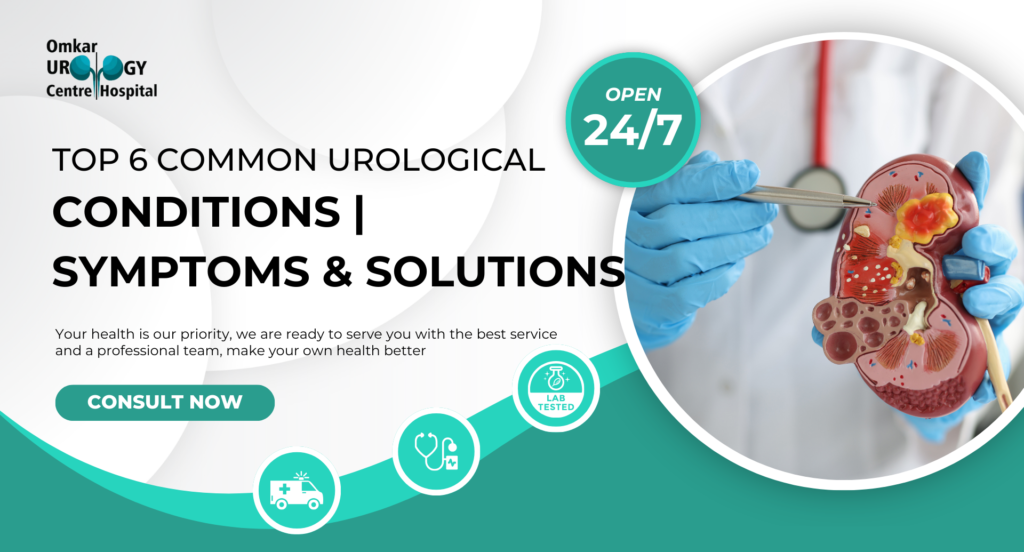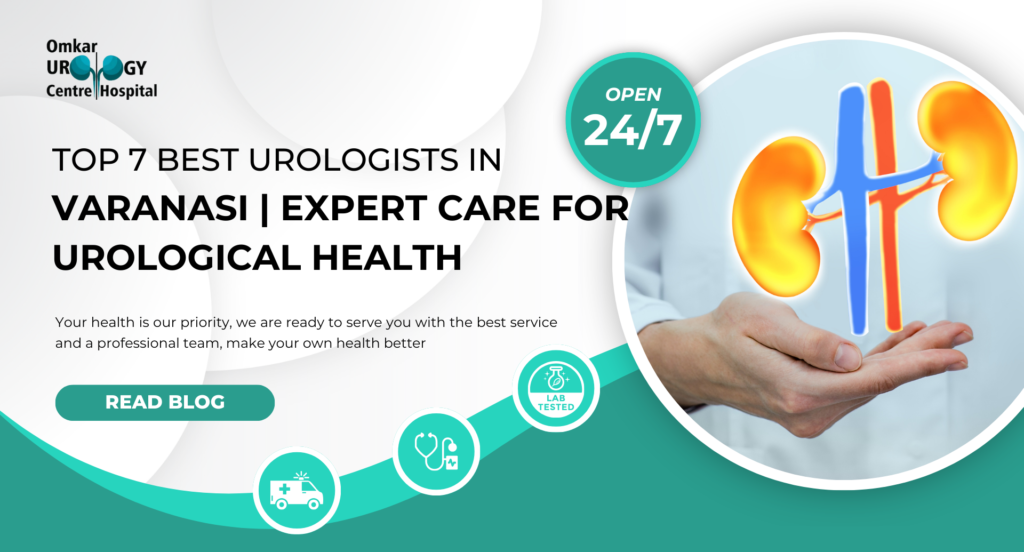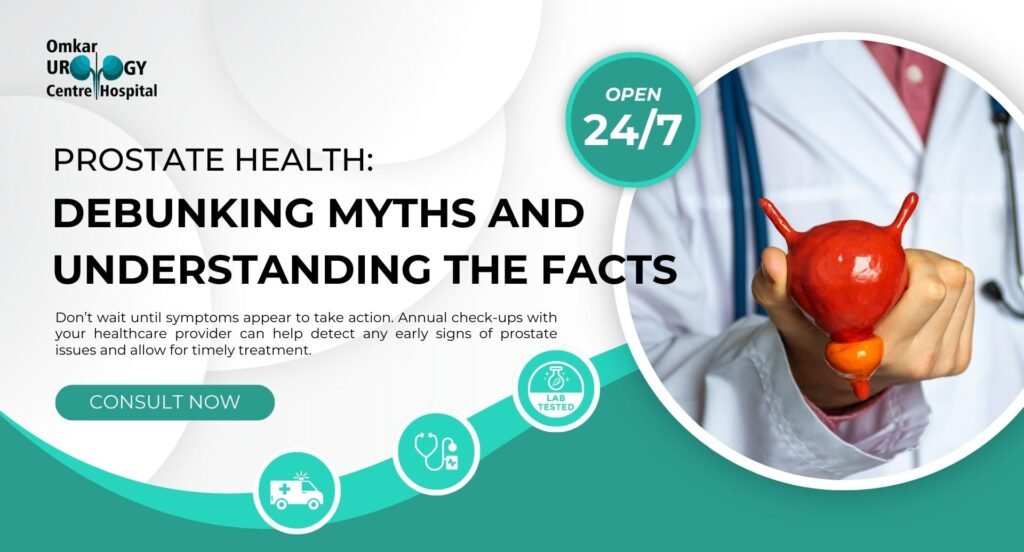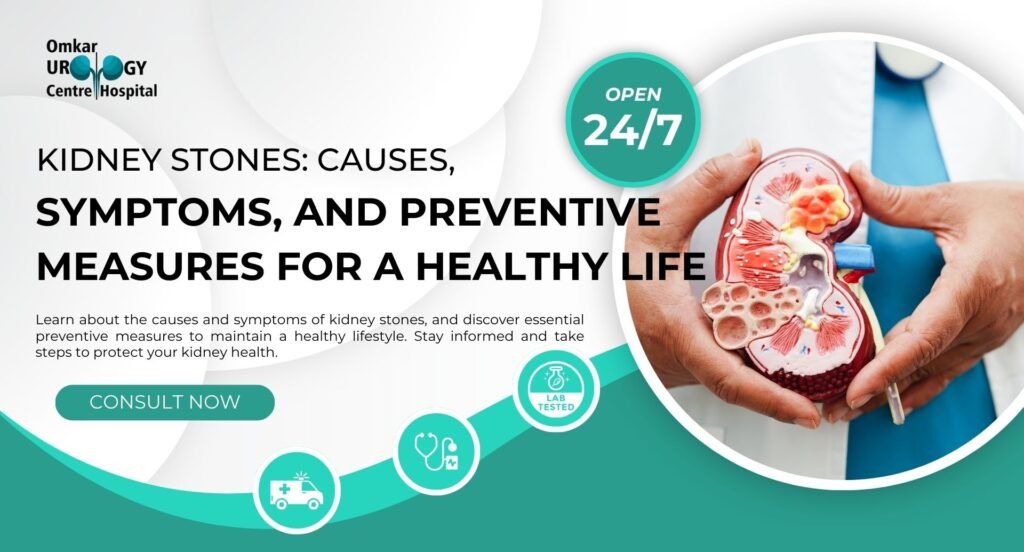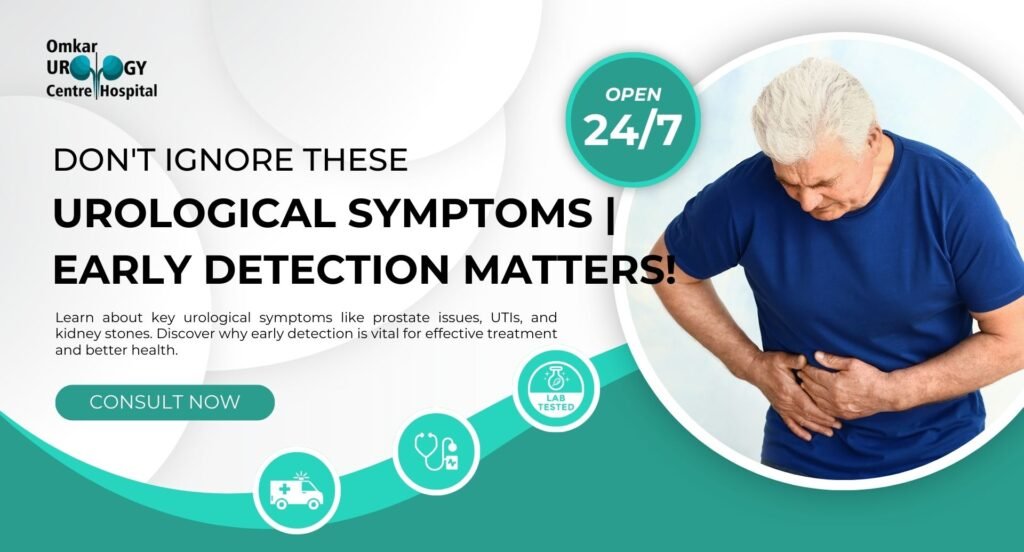
Urological health is often overlooked until a problem becomes too uncomfortable or severe to ignore. However, many urological conditions start with subtle symptoms that, when detected early, can be treated more effectively, reducing the risk of long-term damage and complications. Whether it’s prostate issues, urinary tract infections (UTIs), or kidney stones, early detection can be the difference between a simple treatment and a more invasive procedure. In this blog, we will explore the key urological symptoms you should never ignore, emphasizing the importance of early diagnosis and timely medical intervention.
Understanding Urology and Its Importance
Urology is the branch of medicine that deals with the urinary tract of both men and women, as well as the male reproductive organs. It includes everything from kidney function to bladder health and encompasses a wide range of conditions like prostate problems, UTIs, kidney stones, incontinence, and more. The urinary system is essential for filtering waste from the body, maintaining electrolyte balance, and regulating blood pressure. Even minor issues in this system can have significant consequences on overall health.
Early detection in urology is vital because many urological diseases are progressive. Conditions like prostate cancer, chronic UTIs, and kidney disease can worsen over time if left untreated, leading to more severe complications, including renal failure or cancer metastasis. Regular check-ups and being aware of potential symptoms can help catch issues early, allowing for simpler, more effective treatments.
1. Prostate Problems
a. Benign Prostatic Hyperplasia (BPH)
Benign Prostatic Hyperplasia (BPH) is one of the most common urological conditions affecting men, especially as they age. The prostate gland enlarges, putting pressure on the urethra and leading to urination problems. BPH symptoms include:
- Frequent urination, especially at night (nocturia)
- Difficulty starting urination
- Weak urine stream
- Incomplete bladder emptying
While BPH is not cancerous, it can significantly affect the quality of life. Ignoring these symptoms can lead to bladder infections or even kidney damage in severe cases.
b. Prostate Cancer
Prostate cancer is the most common cancer in men, and like BPH, it often presents with urinary symptoms. Early-stage prostate cancer is often asymptomatic, which makes regular screening crucial, particularly for men over 50. Symptoms of advanced prostate cancer may include:
- Difficulty urinating
- Blood in the urine or semen
- Pelvic discomfort
- Bone pain (in advanced cases)
Early detection through screening methods like the Prostate-Specific Antigen (PSA) test or digital rectal exam can significantly increase the chances of successful treatment. When caught early, prostate cancer has a high survival rate, making regular screenings and attention to symptoms critically important.
READ MORE: Understanding Common Urological Conditions and Symptoms
2. Urinary Tract Infections (UTIs)
UTIs are common in both men and women, although women are more likely to experience them. UTIs occur when bacteria, usually from the digestive tract, enter the urethra and cause infection. The most common symptoms include:
- A strong, persistent urge to urinate
- A burning sensation during urination
- Cloudy or strong-smelling urine
- Pelvic pain (in women)
- Fever, chills, or nausea (in more severe cases)
In men, UTIs can also lead to prostatitis (inflammation of the prostate), which adds more discomfort and complications. If left untreated, a simple UTI can ascend into the kidneys, causing a more serious infection known as pyelonephritis, which may result in permanent kidney damage.
Recurrent UTIs are often a sign of an underlying condition, such as bladder dysfunction or an anatomical abnormality, making early detection and treatment essential for preventing long-term problems.
3. Kidney Stones
Kidney stones are another common urological condition that can cause intense pain and discomfort. They form when there is a high concentration of minerals like calcium and oxalate in the urine, which crystallizes and forms hard deposits. Symptoms of kidney stones include:
- Severe pain in the back, side, or lower abdomen
- Pain during urination
- Pink, red, or brown urine
- Nausea and vomiting
- Frequent urination
If the stones are small, they may pass through the urinary system on their own with minimal discomfort. However, larger stones can block the flow of urine, leading to severe pain, urinary infections, or even kidney damage. Early detection of kidney stones through imaging tests like ultrasounds or CT scans can prevent complications. In some cases, medical intervention such as shock wave lithotripsy (breaking the stone into smaller pieces) or surgical removal is necessary.
4. Bladder Issues: Incontinence and Interstitial Cystitis
a. Urinary Incontinence
Urinary incontinence, or the loss of bladder control, affects millions of people worldwide. This condition can range from a mild leakage of urine to an inability to control urination entirely. Common causes include:
- Weak bladder muscles
- Nerve damage
- Obstruction due to BPH or tumors
- Certain medications
Incontinence can be embarrassing and inconvenient, but it is often treatable with medication, physical therapy, or surgery. Ignoring symptoms may lead to skin infections and social isolation, affecting the quality of life.
b. Interstitial Cystitis (Painful Bladder Syndrome)
Interstitial cystitis is a chronic condition that causes bladder pressure, pain, and occasional pelvic pain. The severity of symptoms varies, but the condition can significantly impact daily activities. Symptoms include:
- Chronic pelvic pain
- Frequent urination
- Pain during intercourse
Since the exact cause of interstitial cystitis is not well understood, early detection and management can help control symptoms and improve quality of life through lifestyle changes, medications, and other interventions.
5. Kidney Disease
Chronic kidney disease (CKD) often develops silently, with few symptoms until the condition is advanced. CKD is the gradual loss of kidney function, and in its early stages, symptoms may include:
- Fatigue
- Difficulty concentrating
- Poor appetite
- Swelling in the ankles and feet
- Changes in urination patterns
When kidney disease progresses, waste and excess fluid build up in the body, leading to more severe symptoms and complications such as heart disease or kidney failure. Early detection through blood tests (to check kidney function) and urine tests (to detect protein leakage) can slow the progression of the disease and prevent kidney failure.
Why Early Detection Matters?
Ignoring urological symptoms can lead to long-term consequences, including permanent organ damage, more invasive treatments, and a decreased quality of life. Regular check-ups and being proactive about your health are key to preventing severe outcomes. If you’re experiencing any of the symptoms mentioned, it is crucial to seek medical attention from a qualified urologist to ensure a thorough evaluation and timely treatment.
Early detection allows for:
- More treatment options: When a condition is caught early, less invasive treatments may be effective.
- Better outcomes: Early treatment of conditions like prostate cancer or kidney disease can prevent severe complications.
- Prevention of progression: Many urological issues, like UTIs or BPH, can worsen over time, leading to more significant health problems if not addressed early.
- Cost savings: Treating a condition early is often more affordable than waiting for it to worsen and require surgery or long-term care.
Conclusion: Don’t Ignore the Warning Signs
Urological symptoms like frequent urination, pain during urination, or blood in the urine should never be ignored. These can be signs of serious conditions such as kidney stones, prostate problems, or even cancer. Early detection can make all the difference in the effectiveness of treatment, quality of life, and overall health outcomes.
If you are experiencing any of these symptoms, it’s essential to consult with a specialized urologist for proper diagnosis and treatment.
READ MORE: The Impact of Diet and Lifestyle on Urological Health: Tips and Myths
At Omkar Urology Hospital, we are dedicated to providing comprehensive care for all urological symptoms. As the best urology hospital in Varanasi, we offer advanced diagnostic and treatment options for kidney stones, prostate issues, UTIs, and more. Our experienced team of urologists ensures that you receive timely and effective care, helping you maintain your urological health for years to come.
Take the first step towards better health by scheduling a consultation with Omkar Urology Hospital today!

